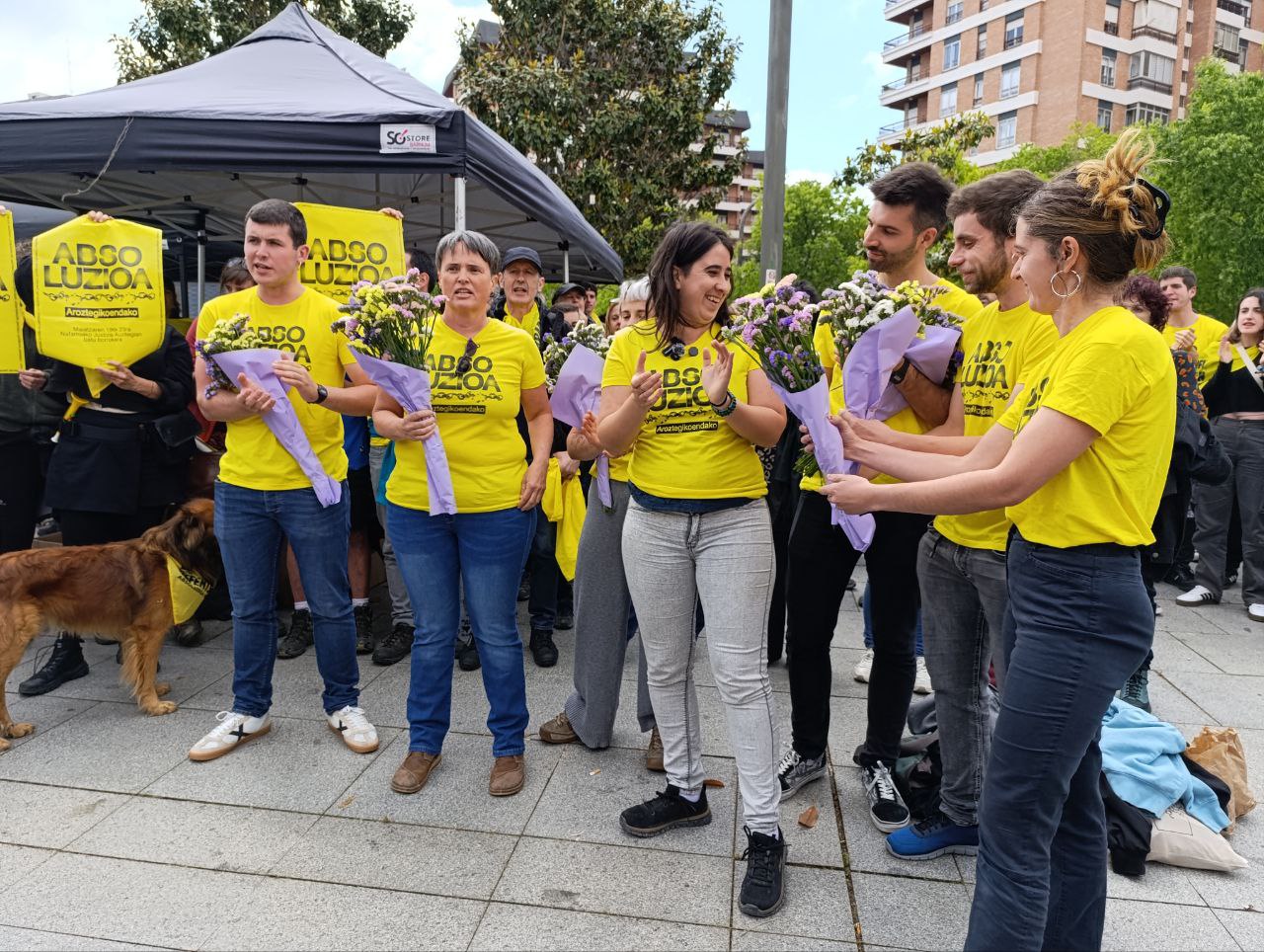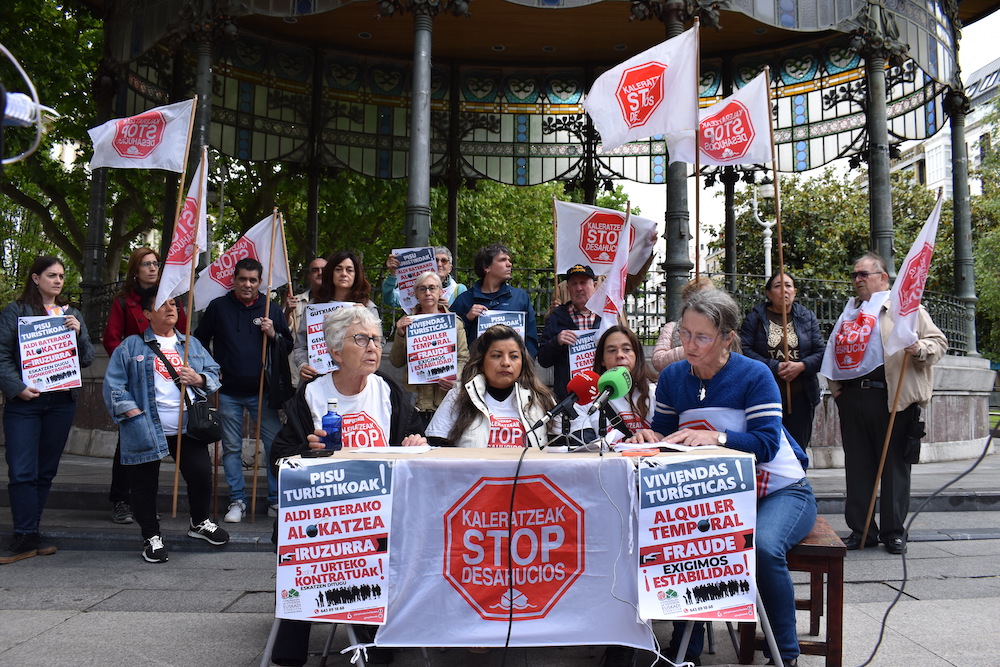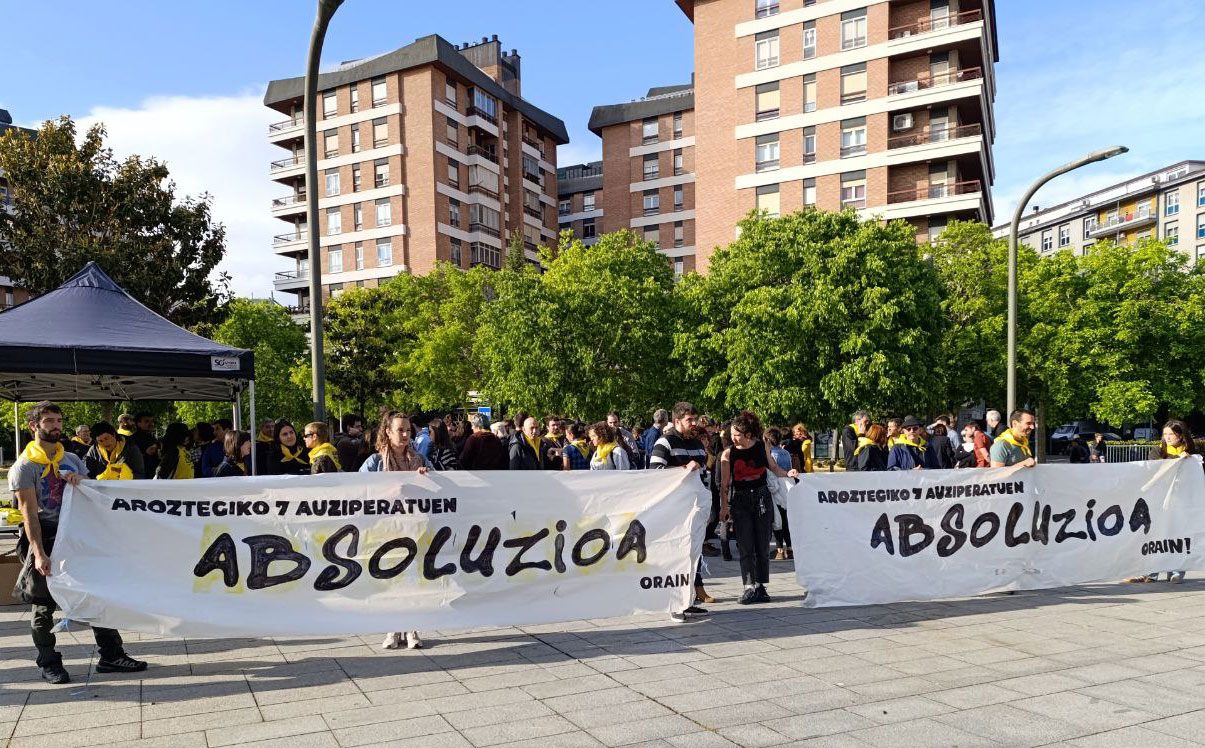Society
Environment
Politics
Economy
Culture
Basque language
Feminism
Education
International
Opinion
sunday 25 may 2025
Automatically translated from Basque, translation may contain errors. More information here. 
History of shipwrecks and bran
- Primo Levi:: If this is a man Alberdania 248 pages. 12.20€

If this is a man when I read the title, not knowing that it was still the translation of Primo Levi, I found it interesting and even thought I would refer to the new masculinities. When I knew I belonged to Primo Levi, I didn't really want to skip the Auschwitz accounts. But when I read to him that if I hadn't had the time of Auschwitz, I would surely never have written, I remembered Le Murmure des fantômes, who wrote Boris Cyrulnik with the Jewish writer, and I hurried to read it in the hope of finding the narrative of another resilient. So I decided to spend a few days with the Doctor Chemist, who lived, survived and dared to tell hunger, cold and death in extremis. The
chemist confesses that he wrote this story just out of Auschwich, and it cannot be otherwise, since the objectivity and accuracy of the story not only resonate in the accuracy of a chemical, but also in the closeness, very vivid and stored. “None of us: they have taken away the clothes, the shoes, even the hairs; if we spoke, they would not listen to us, and if they listened to us, they would not understand us. They have also taken our name off.” In addition to the destruction of man, Levi has filled the story of painful, cruel and moving stories. “All our stories, hundreds of thousands of stories, all special and all conceived by a tragic and strange coincidence. We tell each other at night.” After all, every story of the shipwrecked and the saved is a horribly savage and desperate solitude, educated in the struggle for survival. The
roads to the death of the oldest, the weakest and the Muslims are constant in the text, “because the bell always sounds at dawn and then is a target, but at noon” means to lock itself in the barracks and choose the weakest, the oldest, the most insignificant and the chosen ones to start a journey to the gas without a return. Then the saved got their lives until the bells rang.
The characters on these pages are not men. Their humanity has been buried. There are no women, they have disappeared in the crematoria with children, the elderly and the sick. “But Lorenzo was a man, his humanity was pure and unpolluted, he was outside this world of denial. Lorenzo must not forget that I was a
man.” Levi confesses, in the language of testimony, that this book has no passion. “Not the victim’s concern, not the avenger’s outrage, because the word is more credible and more effective.” You are the judges.
chemist confesses that he wrote this story just out of Auschwich, and it cannot be otherwise, since the objectivity and accuracy of the story not only resonate in the accuracy of a chemical, but also in the closeness, very vivid and stored. “None of us: they have taken away the clothes, the shoes, even the hairs; if we spoke, they would not listen to us, and if they listened to us, they would not understand us. They have also taken our name off.” In addition to the destruction of man, Levi has filled the story of painful, cruel and moving stories. “All our stories, hundreds of thousands of stories, all special and all conceived by a tragic and strange coincidence. We tell each other at night.” After all, every story of the shipwrecked and the saved is a horribly savage and desperate solitude, educated in the struggle for survival. The
roads to the death of the oldest, the weakest and the Muslims are constant in the text, “because the bell always sounds at dawn and then is a target, but at noon” means to lock itself in the barracks and choose the weakest, the oldest, the most insignificant and the chosen ones to start a journey to the gas without a return. Then the saved got their lives until the bells rang.
The characters on these pages are not men. Their humanity has been buried. There are no women, they have disappeared in the crematoria with children, the elderly and the sick. “But Lorenzo was a man, his humanity was pure and unpolluted, he was outside this world of denial. Lorenzo must not forget that I was a
man.” Levi confesses, in the language of testimony, that this book has no passion. “Not the victim’s concern, not the avenger’s outrage, because the word is more credible and more effective.” You are the judges.
Most read
Using Matomo
#1
#2
#3
Xabier Letona Biteri
#4
Nagore Irazustabarrena Uranga
Newest
2025-05-23
Xabier Letona Biteri
Chronicle of the Carpentry Trial (Day Five)
Without evidence, a harsh demand for punishment on the defendants
The Prosecutor and the Private Prosecution have confirmed the criminal charges against the seven defendants, who are sentenced to 46 months in prison and 56,000 euros in compensation for damages to the companies. The defendants’ lawyers have asked for their acquittal. The... [+]
2025-05-23
Maria Ortega Zubiate
Spanish government approves the largest photovoltaic power plant in Álava
231,000 panels will be installed across 100 hectares in the southwest of Álava: In Armiñón. EUskal will be the second largest solar park in the village.
2025-05-23
Gedar
New attempt to ban political prisoners in Spain
The PP has also proposed in the Senate to increase blackmail so that Basque political prisoners have to show remorse.
2025-05-23
ARGIA
The company that has signed Arantxa Tapia will design the government’s €1 billion investment
On May 22, the Basque Parliament approved a bill to indebt one billion euros to “influence science, technology, business and the industrial sector”. The media outlet Nago reported that the Basque Government has asked KPMG Asesores SL to develop the plan, which recently hired... [+]
2025-05-23
Irutxuloko Hitza
San Sebastian’s Stop Dismissal denounces the “fraud” of temporary rental contracts
A tenant from the Old Town of San Sebastian has managed to convert the rental contract for 11 months into a legal contract for five years.
2025-05-23
Maria Ortega Zubiate
Netanyahu Says ‘Palestine Liberated’ Today’s ‘Heil Hitler’
Netanyahu made statements after two employees of the Israeli embassy in Washington were shot dead. The Israeli Government has directly linked the Washington attacks to the statements of several European heads of Government against the massacre in Gaza.
2025-05-23
Jenofa Berhokoirigoin
French Education Minister Urged by Northern Basque Country Parliamentarians to Empower Seaska’s Resources
On 21 May, a letter was sent to the French Minister of Education, Elisabeth Borne, by the six parliamentarians of the Northern Basque Country. In view of the number of students there, the letter deplores the fact that the positions planned for the schools are "far too few".
2025-05-23
Elhuyar
Few companies in the global North are primarily responsible for conflicts related to the extraction of natural resources
Only one hundred multinational companies are behind 20% of all conflicts related to the extraction of natural resources, according to a study carried out by the Autonomous University of Barcelona. Research has shown that companies in countries in the global North are aware of... [+]
2025-05-23
Olaia L. Garaialde
"If we learn to eat with many rules, we may not notice the needs of the body"
The psychopedagogue Mireia Centeno Gutiérrez has given some clues about the feeding of children, such as the consequences of forcing them to eat and banning food.
2025-05-22
Xabier Letona Biteri
The defendants say that by group decision, everything was done peacefully.
The defendants testified on Thursday, and their statements could be summarized as follows: The citizens who gathered in the square of legumes or in the camping area decided collectively what to do, in general, to go to the field of the works and put them passively in... [+]
Eguneraketa berriak daude





















